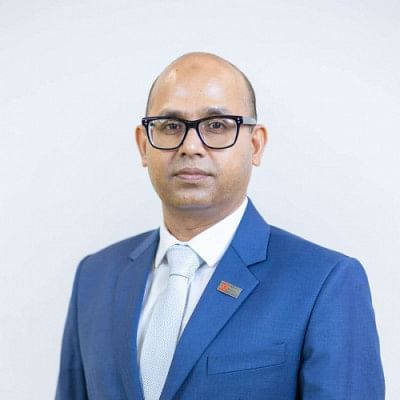It’s time for the youth to get ready for the next level of leadership

The recent changes in the state power landscape of Bangladesh signify what the newer generations are capable of and how they can contribute to rebuilding the nation. In particular, the youth of Generation Zoomers (Gen Z) can help the country draw a new socio-political landscape which can consequently lead the Bangladeshi society to have a fresh set of aspirations.
While the youth-led revolution highlights their resilience, the shift from the past demands a careful examination of the nation's way forward. Will we embrace reforms that leverage the strengths of the youth, or revert to old practices that may hinder their potential? These decisions are critical and our collective future, to a greater extent, depends on this.
The current Bangladeshi youth are the posterity of the students who have shown indomitable spirit during the Language Movement of 1952, the Liberation War of 1971, and the Mass Uprising for Democracy in 1990. Thanks to their fearless voices, contagious courage, and sacrifice, a truly democratic and inclusive nation no longer remains a distant dream.
However, challenges remain as to how the youth will be equipped to contribute to national development, empowering them with leadership opportunities and utilising their true potential. Bangladesh has already been enjoying the added advantage of having a demographic dividend. According to the 2022 census, approximately 65 percent of Bangladeshis are within the working age bracket of 18 to 64 years, and around 28 per cent are aged between 15 and 29 years. This potential can play a significant role in bringing a genuine transformation in society.
To fully capitalise on this opportunity, effective integration of young men and women into the future-proof pool of leaders and workforce is crucial. This needs strategic planning and implementation immediately.

In the current context, the country's policymakers may prioritise budgetary allocations for education, targeting 4-6 percent of gross domestic product (GDP), as recommended globally, raising it from the current mere 1.7 percent. This investment should focus on creating an educational framework which ensures that graduates not only possess the skills required by employers in relevant industries but can also deal with future issues of the country.
Fostering a culture of research and innovation is also critical and accordingly policymakers and stakeholders need to support funding for research initiatives and encourage collaboration between academia and industry.
Since Bangladesh has made certain horizontal progress in increasing enrollment at schools, it is high time for the country to go for improvement in the quality of education by training teachers, updating curricula and equipping educational institutions with the necessary resources to provide a conducive and fulfilling learning environment. Such a learning environment is expected to make the students ready to take up the challenges of life and society and provide solutions.
Establishing sports academies and largely integrating sports into school curricula can promote physical health, teamwork and talent development. By fostering a culture of sports, Bangladesh can enhance the well-being of its youth and create pathways for international recognition and representation.
Like all other segments of the citizens, the youth deserve better healthcare services, but they are facing a compulsion to bring change, especially in making affordable healthcare solutions. The possible integration of technology into healthcare delivery can significantly enhance health outcomes and productivity among the youth. A healthier population strengthens families and enables the youth to pursue their dreams without external burdens.
Promoting participatory governance models is important to effectively integrate everything. It will empower local communities and ensure that the allocated budgets address their specific needs. The youth can also join the process of strengthening local government institutions.
The few reforms as suggested require not just advocacy but rather active participation of the young leaders to navigate the complexities of the power dynamics that are embedded in the existing system. To combat the challenges of the system, it is crucial to equip the youth with the knowledge and tools necessary to establish their voice in the public sphere. Promoting a global standard of education would definitely help the youth to attain a higher level of qualifications. This consequently can pave the way for solidifying a strong voice in the public domain and serving the nation in a better and more meaningful way.
In this regard, the media can play a significant role in shaping public perception and help elevate the accomplishments of the youth, especially in positioning them as role models for future generations. Thus, society can inspire aspiring youth to strive for excellence and create a culture where everyone's perspective is valued.
As Bangladeshi nationals, we are now full of hope for a nation-leading toward innovation and progress. To ensure the nation's forward march, it is essential to prioritise inclusivity and engagement. This includes creating platforms for youth participation in decision-making processes. The state can promote entrepreneurship among the youth to foster a business-friendly environment and enable the youth to contribute meaningfully to the economy.
The Bangladeshi youth are positioned to see a historic transformation, and the country, too, stands at a critical juncture. Bangladesh must utilise the immense potential of the youth if it wants to be on the development trajectory. To this end, it is imperative to act quickly, decisively, and collaboratively to ensure a better tomorrow for all.
Views expressed in this article are the authors' own.
Prof. Muhammad Ismail Hossain is the Dean of Academic Affairs at Universal College Bangladesh.

 For all latest news, follow The Daily Star's Google News channel.
For all latest news, follow The Daily Star's Google News channel. 



Comments